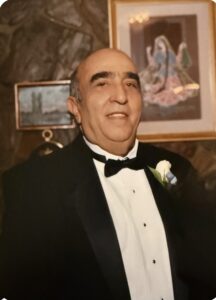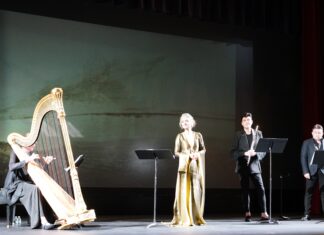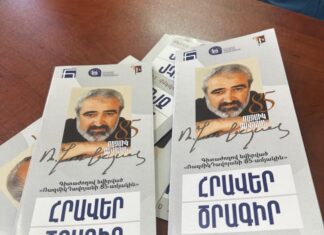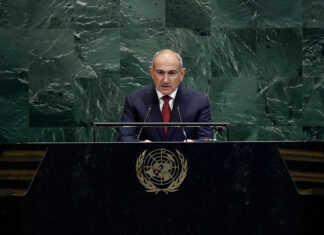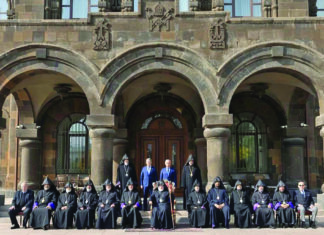By Gayane Muradyan
Special to the Mirror-Spectator
At the current stage of its Artsakh Refugees Aid Program, the Tekeyan Cultural Association of the United States and Canada has decided to help the families of economically disadvantaged Artsakh Armenian children who need medical treatment. The stories of the families presented below are only a few samples of what tribulations the forcibly displaced Artsakh Armenians are facing.
Nora, one of the displaced, said that her son, Edwin, was only 3 days old on the day the 44-day war began in 2020. They were in a shelter and the child got inflammation of the ear cartilage from the effects of repeated shell explosions. Liquid collected in his head and swelling took place. Edwin was operated on in Stepanakert at the age of 1.5 years, but during the months of the siege, his medication was stopped. Now the boy is 3 years old and will continue his treatment in Yerevan.
Lyuba’s husband, Armon, was killed at the defense positions during the September 2023 Azerbaijani invasion. Four boys are now growing up in the family, ages 7 to 26. Seven-year-old Artyom was diagnosed with sarcoma and is being treated at the Yolian Yerevan Hematology Hospital named after Yolian. The family lived in Gishi village of Martunu region in Artsakh. Now they live in Aintap village of Ararat Province. “We left everything in Artsakh, from the graves of relatives to happy carefree times. I left in Artsakh what I will not find anywhere. I left my homeland, but the dream of returning to Artsakh remained with us,” Lyuba exclaimed.
Victoria lived with her husband Sevak in the city of Martuni, Artsakh, until September 19. Four minor children, aged 6-15, were growing up in their family. On September 19, Sevak was killed while defending the positions of the city. Now Victoria and the children live in the city of Echmiadzin of Armavir Province. The boys have a hard time overcoming the longing for their home, yard, and friends in Artsakh. They have psychological problems adapting to a new place. “They feel orphaned without Artsakh,” Victoria explained. “Artsakh also remained an orphan without its people.”
